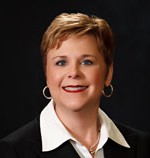For the last 10-15 years, I have been pondering, studying, and presenting workshops about singing in Orff Schulwerk. I even wrote a dissertation titled: “Orff Schulwerk Teacher Educators’ Beliefs about Singing.” My impetus for exploring this topic came from being in a state of “cognitive dissonance” about singing in Orff Schulwerk, something psychologist Kendra Cherry defines as “the feeling of discomfort that results from holding two conflicting beliefs.” (http://psychology.about.com/od/cognitivepsychology/f/dissonance.htm).
You see I’m a singer. So when my Kodály friends criticized the teaching of singing in Orff Schulwerk, I was on the defensive. They even qualified their criticism so as not to include me. One of my closets friends said, “Julie, you are an Orff teacher with a Kodály heart.” I embraced that description because there are aspects of Kodály that I really love and identify with. But what I loved most was the creativity, freedom, student independence, and multiple ways of making music that came from Orff Schulwerk. Couldn’t I have both—a respect for the teaching of quality singing and the joys of Orff Schulwerk?
In 2006, when this debate with my friends about singing in Orff Schulwerk was at its height, I attended a conference in which I heard three children’s Orff ensembles perform. The first of the groups was actually more like a percussion ensemble that played Orff instruments. Their performance did not include singing or movement. The other two groups, however, demonstrated movement that was creative, artistic, and beautifully illustrative of the melodic contours and the forms of the pieces. The playing of the Orff and unpitched percussion instruments was musical and precise. Not only did you hear the musicality; you saw it in the children’s bodies as they played. When I compared the singing to the high-quality movement and playing of the Orff instruments, however, the contrast was quite evident. While the movement and instrumental playing were precise, artistic, and musical, the singing was…good. It was as if less attention had been paid to the quality and precision of the vocal sound. For the first time, I questioned whether there might be some credence to my colleagues’ criticism.
That was the cognitive dissonance that sent me on my quest to learn more about singing in Orff Schulwerk. I went back to re-read some books and articles from Orff and Keetman. Writing about early experiences in accompanying “call” and “chant” melodies, Keetman said, “Pay attention to the soft playing of accompaniments so that the singing can come through more strongly.” (Elementaria, p. 64) Orff wrote, “The melody should, when possible, also be sung.” (Music for Children, 1958-66, p. 144). And, in a 1983 speech, comparing the original work with adults at the Güntherschule to the changes that would necessarily take place with children and the Bavarian Radio programs, Orff wrote:
The unity of music and movement, that young people in Germany have to be taught so laboriously, is quite natural to a child. This fact gave me the key for my new educational work. It was clear to me what Schulwerk had so far lacked. Apart from a few painful experiments, we had never allowed the singing voice and the spoken word their rightful place. Now the call, the rhyme, the word, the song were the decisive factors, for with children it could not have been otherwise. Movement, singing and playing became a unity. (Orff Re-Echoes, p. 6)
For my dissertation study, I interviewed six Orff Schulwerk teacher educators—people who teach “levels” courses. The theme that emerged during the study that struck me the most was, “I am an instrumentalist.” Here are some quotes that formed that category:
- First thing I, I, I (sic) feel like I want to say is that it feels a little uncomfortable for me to talk like, about singing like I know something about it because all my background is in instrumental music. So I want to clarify that this is an instrumentally trained person.
- I came to this thing as a trumpet player, as an instrumentalist with little or no singing background. I sang in the high school choir, but in my mind I was an instrumentalist. And that was one of the things that attracted me to Orff, and I’m sure it’s what attracts many instrumentalists is the idea of playing these instruments.
- When I was younger, I just figured people sang, and I didn’t think about it…and then, when I was in the 9th grade, my girlfriend had a really nice voice, and I would play the piano and accompany her in talent shows. And that’s where I started thinking, “Oh so we’re not all created equal.” And then in high school, there were people who really had good voices and I started to really know, “Okay, some instruments are better than others,” in terms of the vocal instrument, and it had never occurred to me that I wasn’t a very good singer.
These quotes come from highly respected teachers of Orff Schulwerk—names that would be familiar to most of you— and some of the most accomplished musicians I know. Yet, when it came to talking about singing, they became nervous and insecure. In defense of my colleagues, I thought, “Who died and left any one person or pedagogical approach in charge of being the judge of who sings or teaches singing best?” I had come 180 degrees—from thinking that we didn’t teach singing well, to thinking that the varied media (singing, speaking, moving, and playing instruments) are exactly what drew a lot of us to Orff Schulwerk, and that those are the same characteristics that make the approach so appealing to children.
Another thing has struck me since traveling to Germany and Austria six times over the last seven years. Carl Orff and Gunild Keetman didn’t focus on singing, partly because singing was what the children of Bavaria were already doing—and what the teachers were already teaching—WELL. (I mean, seriously, we’re talking about the region of the Salzburg Festival and the Von Trapp Family Singers.) What they were already doing was sitting in their chairs happily singing the beautiful songs of Bavaria. Carl Orff thought the singing was all well and good, but that the music should be joined with movement to create a more natural experience. Long before our Western culture teaches us not to dance and move to the music we are singing, playing, or hearing, we are moving naturally. We sing along at the top of our lungs in public when we’re little—we even make up our own songs and chants—until we’re taught that it’s inappropriate and embarrassing to do so in public. By the time we’re eight or nine years old, we think you shouldn’t sing aloud unless we’re worthy of singing in the finals of America’s Got Talent. Somehow, we’ve got to dispel that idea.
I’d like to conclude by asking these questions. How many of you teach singing? How about body percussion? Movement? Improvisation? Recorder? (I hope all of you answered “yes” to all of those questions.) But now, how many of you feel that you are equally adept at teaching all of those? How many of you have students who are equally adept at all of those?
Regardless of whether a person is an instrumentalist, vocalist, dancer; electrician, attorney, or 4th grade teacher, everyone should sing! Through the varied ways of being musical that Orff Schulwerk offers, everyone has a chance to make music, as human beings are born to do.

